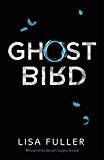Set in a small Queensland town in 1990 ‘Ghost Bird’ is the story of a missing girl, love between sisters, a family under pressure, old secrets, and the power of forces that defy scientific explanation.
Stacey, the ‘good twin’ searches for her sister Laney – who has disappeared – feared kidnapped by a local young troublemaker. While the plot turns on Stacey’s search for Laney, the text portrays, with a high level of detail, the family circle at a time of crisis. The overall effect is a nuanced and wholly believable portrait of marginalised people in rural Queensland circa 1990, where the memories and experiences of past prey upon present problems.
Stylistically, ‘Ghost Bird’ blends elements of history, mystery, thriller, realism and romance. The debut novel by ‘Eisdvold Murri’ woman Lisa Fuller is written with authenticity to the culture and people she portrays.
Racism and the legacy of dispossession form part of the picture. Stacey is ostracised at school, the subject of violent attack, and is warned to keep away from taboo land. There is also division among Indigenous people: a long-running division between the Miller and Thomson families delays the discovery of Laney. The guarded romantic attraction between Stacey Thomson and Sam Miller (who seeks to help in the search for Laney), underscores the old divisions.
Notable is a thread about malevolent forces that deliver retribution for the removal of the land’s treasures. This allows the narrative to express beliefs about place, tradition and Dreaming without betraying specific cultures.
‘Ghost Bird’ sometimes uses strong language (f*ck being a popular adjective throughout). The dialogue lends verisimilitude to scenes and reflects the speech habits of the society the novel draws upon. The edgy language is also deployed for comic effect to defuse tense situations, and irony is often present between characters.
Lisa Fuller is a Wuilli Wulli woman from Eidsvold, Queensland, and is also descended from Gooreng and Wakka peoples. ‘Ghost Bird’ is her debut novel and it has been the recipient of a number of awards.
Winner – 2020 Readings Young Adult Book Prize
Winner – 2017 David Unaipon Award (for an unpublished manuscript by and Indigenous author)
Winner – 2020 The Norma K Hemming Award – Marking excellence in the exploration of themes of race, gender, sexuality, class or disability in speculative fiction
Honour Book – 2020 Children’s Book Council of Australia, Older Readers category

